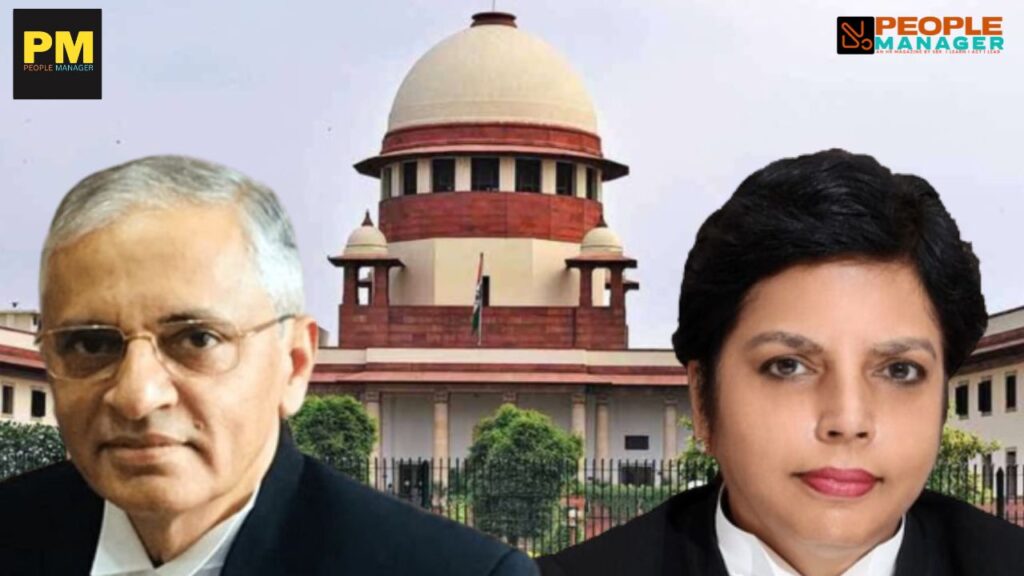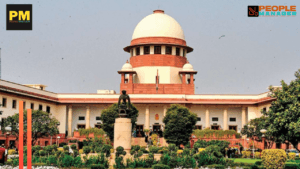Supreme Court Order Center, state government to guarantee ICC’s constitution at workplace; alarmed at the absence of proper Execution of the PoSH law Regulations
Immediate steps are to be taken by employers to familiarise members of ICC with their duties and the manner in which the enquiry is to take place from the point the complaint of sexual harassment is received, till the report is submitted SUPREME COURT

Supreme Court Order Center, state government to guarantee ICC’s constitution at workplace; alarmed at the absence of proper Execution of the PoSH law Regulations
On May 12, 2023, in Aurelio Fernandes v. State of Goa and Others, the Supreme Court expressed strong disapproval of the fact that, even ten years after the Sexual Harassment of Women at Workplace (Prevention, Prohibition and Redressal) Act of 2013 (POSH Act) was passed, serious gaps in its effective enforcement persisted, as per the reports.
The Court was informed that, according to a poll done by a national daily newspaper, 16 of the 30 national sports federations in the nation do not currently have an internal complaints committee (ICC).
Justices AS Bopanna and Hima Kohli’s bench stated that the situation was regrettable. The Court emphasised that it is the responsibility of all State employees, public officials, private businesses, organisations, and institutions to carry out the POSH Act in letter and spirit. “It is frequently observed that when women experience sexual harassment at work, they are hesitant to report such behaviour.
Many of them quit their jobs altogether. Uncertainty regarding who to approach under the Act for resolution of their grievance is one of the causes of this reluctance to report.
Another issue is a lack of faith in the process and its conclusion. The Court stated, “This social ailment requires immediate amelioration through robust and efficient implementation of the Act.”
To do this, the bench stated, it is critical to educate the complaining victim about the significance and operation of the POSH Act.
As a result, it requested that the Union Government and the State Governments take affirmative steps to guarantee that the goal of passing the POSH Act is met in practise.
The Court also issued the following directives to ensure that the POSH Act be implemented robustly and effectively:
- The Union of India, all State Governments, and Union Territories are directed to conduct a time-bound exercise to determine whether all relevant Ministries, Departments, Government organisations, authorities, Public Sector Undertakings, institutions, bodies, and so on have formed ICCs/LCS/ICs, as the case may be, and that the composition of the said Committees is strictly in accordance with the provisions of the POSH Act.
- It shall be ensured that necessary information regarding the constitution and composition of the ICCS/LCS/ICs, details of the designated person(s)’ e-mail IDs and contact numbers, the procedure prescribed for submitting an online complaint, as well as the relevant rules, regulations, and internal policies, are readily available on the website of the concerned Authority /Functionary/Organization/ Institution/Body, as the case may be. The information provided must also be updated on a regular basis.
- A similar exercise must be carried out by all statutory bodies of professionals at the national and state levels (including those regulating doctors, lawyers, architects, chartered accountants, cost accountants, engineers, bankers, and other professionals), universities, colleges, training centres, and educational institutions, and government and private hospitals/nursing homes.
- Authorities/managements/employers must take immediate and effective steps to familiarise members of the ICCs/LCs/ICs with their duties and the manner in which an inquiry should be conducted upon receiving a complaint of sexual harassment at the workplace, from the time the complaint is received until the inquiry is finally concluded and the report is submitted.
- Authorities/management/employers shall undertake orientation programmes, workshops, seminars, and awareness programmes on a regular basis to upskill members of the ICCS/LCS/ICs and educate women employees and women’s groups on the requirements of the Act, the Rules, and related regulations.
- The National Legal Services Authority (NALSA) and the State Legal Services Authorities (SLSAs) shall develop modules and organise awareness programmes to familiarise authorities/managements/employers, employees, and adolescent groups with the provisions of the Act, which shall be included in their annual calendar.
- The National Judicial Academy and the State Judicial Academies shall include orientation programmes, seminars, and workshops in their annual calendars to build the capacity of members of the ICCs/LCs/ICS established in the High Courts and District Courts, as well as to draught Standard Operating Procedures (SOPs) to conduct an inquiry under the Act and Rules.
The Court stressed that the POSH Act will never succeed in ensuring the dignity and respect that women deserve at work unless and until the enforcement regime is strictly followed and all State and non-State actors take a proactive attitude.
“If the working environment remains hostile, insensitive, and unresponsive to the needs of female employees, the Act will be a hollow formality.”
JOIN THE OPEN DISCUSSION ON THE SUPREME COURT ORDER ON 17TH MAY 9 PM
If the authorities/managers/employers cannot ensure them of a safe and secure work environment, they will be afraid to leave their homes to make a decent income and fully utilise their potential and talents. “It is thus time for the Union Government and the State Governments to take affirmative action and ensure that the altruistic goal of enacting the POSH Act is realised in real terms,” the Court stated.
The Court, therefore, directed that a copy of the judgment be transmitted to the secretaries of all the ministries, Government of India who shall ensure implementation of the directions by all the concerned departments, statutory authorities, institutions, organizations etc., under the control of the respective ministries.
- Pernod Ricard India introduces Cheers VRorld, an industry-first VR-powered onboarding experience in the Alco-Bev sector - February 11, 2026
- Jio-bp Appoints Sareeta Bhatikar as Chief Human Resources Officer to Steer Next Phase of Growth - February 11, 2026
- India Keeps Hiring as Global Markets Slow: Michael Page India Salary Report-26 - February 6, 2026









